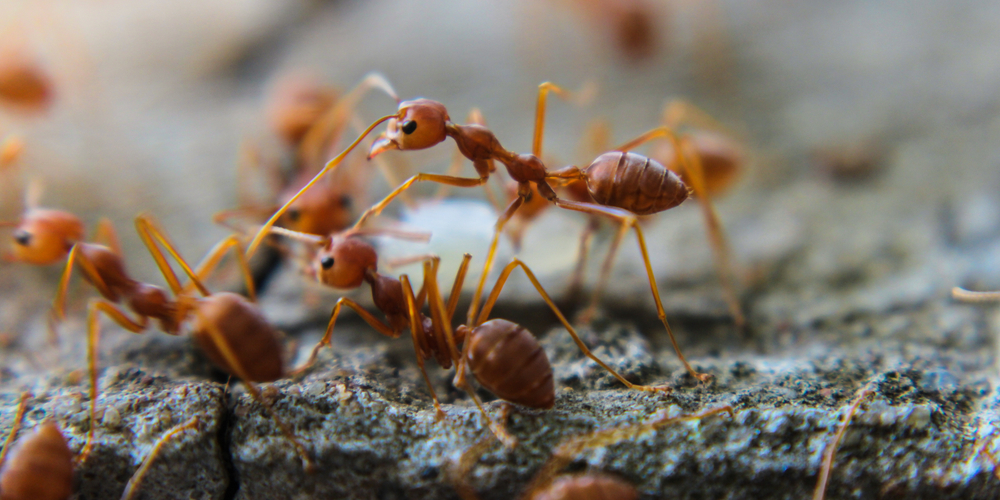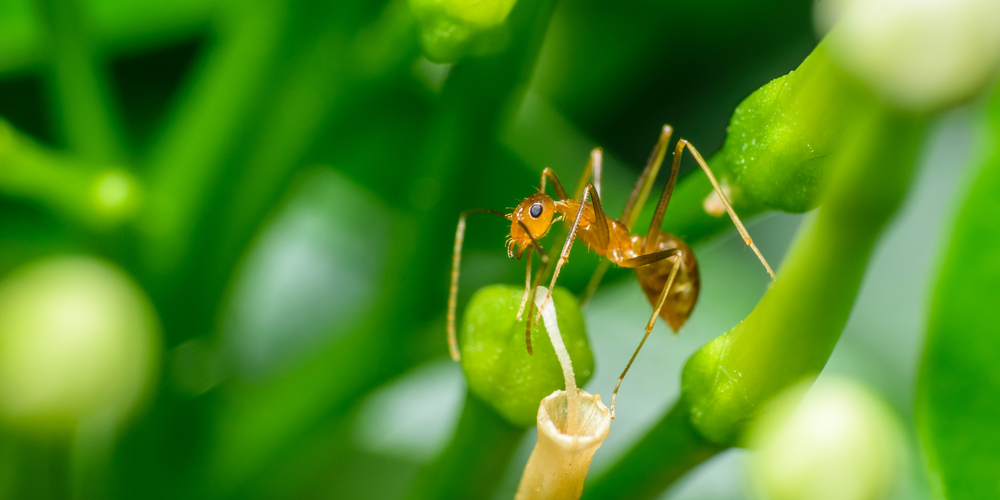Ants aren’t a good thing to have in your home and may or may not be beneficial in your raised garden bed. Undeniably, ants provide gardens with some benefits, including eating other pests, aerating the soil, and supporting pollination.
But ants can have harmful effects, creating property damage and biting or stinging gardeners. Read on to discover why ants are inundating your raised garden bed and how to get rid of them.
Causes of Ants in a Raised Garden Bed

There are several reasons why ants are congregating in your raised garden bed, including:
- Pests secreting a sweet liquid
- Organic fertilizer containing attractive food
- Overgrown vegetation for hiding
- High moisture content
In fact, pests like aphids work as a double attractor for ants. These insects secrete a sweet liquid, which ants like the smell of. But on top of this, ants eat aphids, so their sweet smell will attract ants to the garden, and a buffet of aphids will keep them sticking around.
How To Get Rid of Ants in a Raised Garden Bed
Despite their benefits to plants, no one wants hundreds of ants crawling around the gardens near their home. So, below are some steps you can take to reduce the number of ants that visit your raised garden bed.
Use Insecticides
Without aphids and other yummy insects to munch on, ants won’t be as attracted to your garden. So, applying an organic insecticide to the plants in your raised garden bed will reduce or eliminate pests, thus deterring an ant’s interest.
Beyond the benefit of fewer ants in your garden, your plants will also appreciate the insecticides. Aphids and other sap-sucking pests damage plants, making them more susceptible to diseases.
Make Your Yard Uninviting
Ants usually cross through a yard to arrive in your raised garden bed. They prefer doing so in areas with lots of moisture, debris, and tall grass, giving them hiding places from predators.
So, by mowing your lawn often, picking up yard debris, and keeping your bushes trimmed, you’ll reduce the likelihood that ants will take the time to venture into your raised garden bed.
Set Up Ant Bait
Depending on your viewpoint, placing ant bait near your garden bed may or may not be a viable solution for you. Ant bait works by having a tasty flavor that makes ants eat it. They then carry the “food” back to their nest.
The catch is that this bait is poison. So, it’s an effective way to kill ants at the root of the problem. If you don’t like having poison near your garden, pets, or kids, you can leave trays of artificial sweeteners around your garden, which studies show can kill ants.
Boiling Water Technique
If you know the location of the ants’ home, you can stop them from visiting your garden by pouring boiling water on the anthill. You’ll likely need to use several pots of water to kill most of the ants.
Any ants who aren’t in their home at the time will see the destruction when they return and, with any luck, will move elsewhere.
Natural Deterrents
Instead of giving the ants something lethal to consume or killing them with hot water, consider opting for a more holistic method by spreading cayenne pepper or ground cinnamon around the perimeter of your garden.
Ants don’t like the smell of such deterrents, so it can encourage them to move to greener “gardens” without harming them.
Keeping Ants Out of Your Raised Garden Bed
The likelihood of eliminating all ants from your yard is slim. However, you can reduce ant infestations by implementing one or more of the strategies here.

